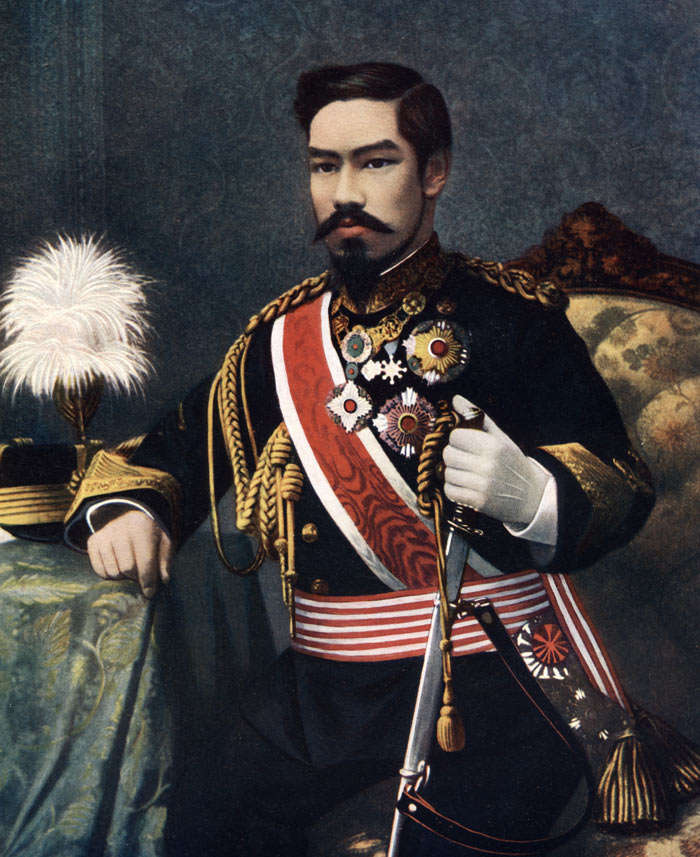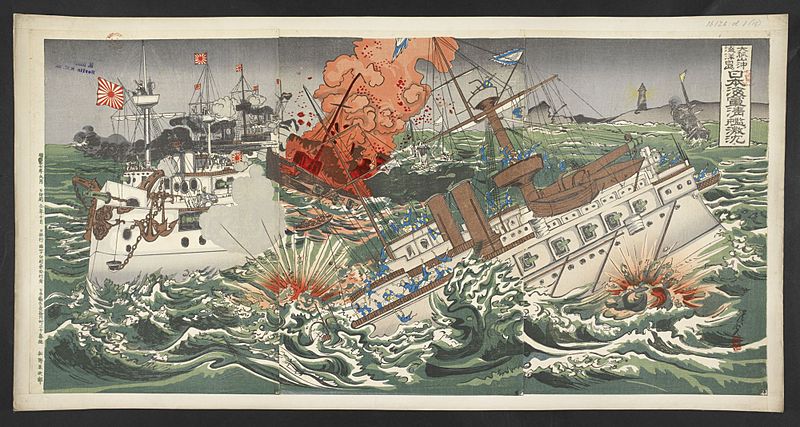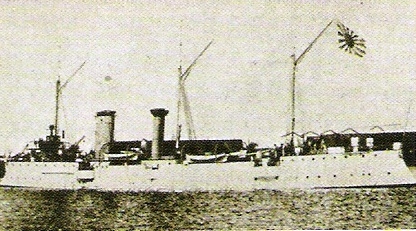We’re tackling one of our most confusing legal systems yet in a case so complicated no one could even figure out which jurisdiction covered it. Because there was no law covering criminal negligence, the accidental sinking of the warship Chishima was tried in a civil court–but Japan’s bizarre treaty system forced the emperor of Japan to personally take his suit to a British court on Chinese soil. Mix in a little debate over maritime law, a dash of confusion over precedent, and a lot of nations with an interest fighting for their share of Japanese trade for a truly nonsensical court battle.
Featured image: A photograph of the Chishima. (Image source)

Emperor Meiji, who was required to “appear” in British court as a private person in order to bring this suit (although he never actually did appear in person at this British court, and who had sovereign immunity under British law and thus could never be under British jurisdiction). (Image source)

A battle scene showing a Japanese ship (on the left) sinking a Chinese ship in the first Sino-Japanese war. The Chishima would probably have been a part of this war, which began in 1894, if she hadn’t sunk in 1892. (Image source)
Sources
- Offences Against the Person Act 1861
- The Imperial Japanese Government v The Peninsular and Oriental Steam Navigation Company (China and Japan) [1895]
- Gogo Island
- The History of Japanese Currency
- The ‘Bankoku Shimbun’ Affair: Foreigners, the Japanese Press and Extraterritoriality in Early Meiji Japan
- Richard T. Chang, “The Chishima Case.” The Journal of Asian Studies 34, No 3 (May 1975) p 593-612
- David Evans and Mark Peattie, Kaigun: Strategy, Tactics, and Technology in the Imperial Japanese Navy
- Par Kristoffer Cassel, Grounds of Judgment: Extraterritoriality and Imperial Power in Nineteenth-Century China and Japan
- Masaji Chiba “Japan” edited by Poh-Ling Tan, “Asian Legal Systems” Butterworths, London, 1997.
